 One thousand lucky Dragon*Con 2010 attendees received a Pyr sample chapter book containing excerpts from ten new and forthcoming titles. The reception was so fantastic--and immediate--we've decided to offer all our readers the opportunity to preview the same forthcoming Fall and Winter books here online. Pyr books recently celebrated our five-year anniversary in March 2010. In this half decade, we are honored to have been on the Hugo Awards ballot eight times, as well as on the World Fantasy Award, Nebula Award, Philip K. Dick Award, Locus Award, Chesley Award, and other prestigious award ballots. But the greatest honor has been the way readers have embraced our books. We promise the best is yet to come.
One thousand lucky Dragon*Con 2010 attendees received a Pyr sample chapter book containing excerpts from ten new and forthcoming titles. The reception was so fantastic--and immediate--we've decided to offer all our readers the opportunity to preview the same forthcoming Fall and Winter books here online. Pyr books recently celebrated our five-year anniversary in March 2010. In this half decade, we are honored to have been on the Hugo Awards ballot eight times, as well as on the World Fantasy Award, Nebula Award, Philip K. Dick Award, Locus Award, Chesley Award, and other prestigious award ballots. But the greatest honor has been the way readers have embraced our books. We promise the best is yet to come.Here, from that sampler, is an excerpt from The Wolf Age by James Enge, available in October.
“James Enge’s books are like a strange alloy of Raymond Chandler, Fritz Lieber, Larry Niven, and some precious metal that is all Enge’s own. They’re thrilling, funny, and mysteriously moving. I see ten things on every page I wish I’d written. I could read him forever and never get bored.”
—Lev Grossman, New York Times bestselling author of The Magicians
coming soon
The Wolf Age
James Enge
Spear-age, sword-age:
shields are shattered.
Wind-age, wolf-age:
before the world founders
men will show mercy to none.
—Voluspa
CHAPTER ONE
COUNCIL OF THE GODS
Listen, Iacomes. This is what I see.
The Strange Gods were gathering by the Stone Tree, but Death and her sister Justice had not yet appeared. Justice, they knew, would not, but they expected Death to be there before them and War was angry.
“I swear by myself,” War signified, indicating by a talic distortion that the oath was not sincere or binding, “Death is the strangest of the Strange Gods. She pervades the mortal world, but she can’t manifest herself anywhere within a pact-sworn juncture of space-time!”
“I am here,” Death signified.
Now that they noticed her presence among them, the Strange Gods realized she had been implicit in a fold of local space-time all along, and simply had not chosen to reveal her presence to them. The other gods signified nontrivial displeasure with her.
Death indicated indifference and readiness to begin the pact-sworn discussion.
The Strange Gods did not submit to a ruler. In their discussions, it was common for the weakest of them to preside. So Mercy manifested herself more intensely than she would normally have done, and reminded them of their mission to destroy the werewolf city Wuruyaaria and how it was currently imperiled.
“It is Ghosts-in-the-eyes,” signified Wisdom. “They are a powerful maker and necromancer—a master of all the arts we hate. Our instrument will destroy the city”—Wisdom indicated a pattern in events they all understood—“but now unless we find a way to bring down the walls of Wuruyaaria more swiftly, our instrument may also destroy great swathes among our worshippers. This goes against our nature and cannot be accepted.”
Other gods indicated agreement.
Death indicated chilly amusement: a laugh. “The werewolves will die,” she signified. “Their city will die. Our worshippers will die. Our instrument will die. Everything that lives must die. When the last soul is severed, this world will collapse into its component elements and drift away in pieces, flotsam on the Sea ofWorlds. All this will happen in time: let events take whatever course they will, this is their destination. If this goes against our nature, our nature is doomed.”
Each of the other gods emanated anger that would have killed a material being. It was uncivil of Death to prate about these matters that were well known to every god. If Death felt any discomfort from their emanations, she didn’t show it. Her next comment was more immediately helpful, though.
“I have a kind of solution to propose,” Death signified. “I would have effected it already, but the consequences will affect our pact-sworn efforts to destroy Wuruyaaria.”
Mercy signified a need for more details; other gods echoed her.
Death indicated a trivial detail in the pattern of events: the death of a man named Morlock.
The gods expressed indifference.
Death changed the details’ position in time-space.
The gods meditated on the new potential patterns of events, a flowering of dark futures springing from this one seed.
Most of the gods expressed surprise. Cruelty chuckled a bit, slowly shaking his heavy, many-toothed head.
Death again changed the details’ position in time-space. The manifold patterns of things-to-be changed even more radically.
“How can this be?” signifiedWar. “Men and women die every day and their deaths do not matter.” Mercy signified some restlessness at this, but the Strange Gods were used to ignoring the endless quarrel between War and Mercy.
“The progress of our plan in the as-things-are moves very slowly,” Death signified. “There is a tension of powers: our instrument; the pact binding our powers in this nexus of events; that damned sorcerer, Ghosts-in-the-Eyes; the natural forces we do not control; and so on. If we disrupt that tension, unbalanced powers will unleash events like a torrent.”
Wisdom emanated concern, a need to wait. They did wait as he juggled futures in various shapes, pondering the uncertain effects of varying causal chains. “I cannot chart the path of this torrent,” he signified finally to Death and to his peers. “It may benefit our pact-sworn intention or harm it.”
“We must guide the torrent,” signified War with obvious eagerness.
“We can’t,” Wisdom signified bluntly. “If we break our sworn intention we will be adrift in the torrent, effecting local changes within it but unable to determine its course. Each change will create new and interacting series of causation. There is certainty in our pact of sworn intention. In this other there is only chaos.”
The Strange Gods, as one, made a symbol of protection against the name of this alien god. It had shocked them, as Wisdom intended, lending an unusual force to his signs.
“Certainty only of failure,” Cruelty signified. “I was against the proposed instrument from the beginning. It is clear now that I was right and others were wrong. Why should the pact be sacred? Only our wills are sacred, or we are not gods.”
“The pact is our will,” signified Loyalty. “It is our will united to act as the Strange Gods. To break that is to blaspheme against ourselves.” He continued for some time and stopped only when he visualized that the assembly was against him.
Everything he signified was true, but they would not accept failure. On the other hand, Wisdom had frightened them with his tomorrow-juggling and his metaphorical torrents.
“I propose a compromise,” signified Stupidity. “Death alone will be freed from the pact-oath. The rest of us will abide by it. That should reduce the chaos in events.” The Strange Gods impatiently made again the symbol of protection against the name of Chaos. Stupidity’s use ofWisdom’s trope emanated contempt and mockery, as was his intent. The gods were annoyed with Stupidity, but he did succeed in making them think less of Wisdom. Suddenly, Wisdom’s fears seemed less wise, more fearful.
“That hardly matters,” Wisdom signified warningly, but the gods were not prepared to listen. They wanted to do something, and this compromise allowed them the illusion of keeping to their plan even as they adopted a new one.
The compromise, in the end, was assented to by all the Strange Gods (except Justice), and Death alone was released from the pact.
“I go,” signified Death, who ceased to manifest herself.
The rest of the Strange Gods stood conferring worriedly under the Stone Tree until the sun rose in the west and they fled like ghosts to hide with the darkness underground.
CHAPTER TWO
DEATH BY WATER
Morlock Ambrosius shuffled the deck and dealt again. He was sitting by the side of an empty field on the great northern plain, using the surface of a broad stump as a card table.
He threw a set of cards in a spiral pattern, crossed each card with another drawn from the pack, and then sat back to contemplate them. He again saw the drowned sailor, crossed by the Death card, the Lady of the Rocks. There were some variations: the one-eyed merchant bore the blank card of Mystery, the Wheel was crossed by the man with three wands looking out to sea. This was the third time he had thrown the cards, and each time they had prophesied the same fate: death by water.
He had invented the cards as a way to gather signs from the future without using his Sight. That was dangerous for him now: he knew that Merlin had broken loose from his earthy prison and might be exerting his own powers of Sight to track or trap Morlock. He had left his horse with a friend and let his choir of flames run wild in an open seam of coal. He had walked away from everyone and everything he knew so that when the final battle came between him and Merlin, as few people as possible would be destroyed. (In fact, he didn’t much care if he himself survived the battle, but he hated the thought of losing to his old embittered ruthen father.) And now, instead of telling him anything about the conflict he knew was coming, the cards kept predicting his death by drowning.
Morlock shrugged his crooked shoulders and gathered up the cards. It was the nature of any type of mania to reveal things that were useless until one met them in the context of a living Now. He slipped a band on the deck and tucked the cards into a pocket in his sleeve. Then he stood and walked northward up the road to the next town.
~~
Morlock Ambrosius knew the town would be empty before he got there. He had seen enough of them on the northern plains to read the clues by now: the lack of smoke, even from the local smithy, was the clearest sign. What he didn’t know was why the town was dead. It had not been for long. There was meat fresh enough to eat in the pantry of the town’s sole cookhouse. Morlock cooked and ate it, along with some slightly stale bread and withered mushrooms he had also found there. He left the deck of cards on the counter in payment, even though he had a feeling the owners of the place would never return to claim it.
The place bothered him, so he didn’t sleep there. He hopped a wall and walked due north across the brown stubbly fields, averting his eyes from the sun setting in the east. That was how he saw the raiding party approaching from the west.
Morlock was so old he didn’t bother to keep count of the years anymore and had seen things like this before. The mystery of the empty towns stood explained: they had fled the raiders who were now returning toward the northern road after having caught at least some of the townspeople. The only question now was how Morlock could avoid being swept up by the raiders.
He knew a few invisibility spells, but they would all make his presence felt to a seer, if they had any in their party. Mundane concealment would be better than any spell, but there were no buildings near enough to be of any use. He settled for sitting down with his back to a wall facing east and waiting for them to pass.
It almost worked. The raiders had some trouble with their prisoners at the wall, which they were crossing somewhat north of Morlock. A few children made a break, running away northward, and a few raiders had to round them up while the others supervised the prisoners’ crossing of the wall. They had much to trouble them without looking about for stray travelers.
Morlock, on the other hand, had a chance to observe the raiders and their prisoners quite closely. The raiders were rather odd looking, with long hatchet-narrow faces and necklaces strung with varying numbers of long sharp teeth.
They had with them several doglike creatures who were not, in fact, dogs. Some of them took orders and obeyed them with more-than-canine shrewdness. Others seemed to be barking orders that the men (or manlike raiders) would obey.
Morlock watched their shadows to confirm his guess. They were long, distorted by the low angle of the setting sun. But where they fell upon the wall it was clear: the dogs or wolves cast shadows like a man crouching on all fours, while the men cast shadows like wolves standing on their hind feet.
It was a raiding party from the werewolf city somewhere to the north. Morlock forgot the name, if he had ever known it. His sister could have told him, if she were here.
The prisoners were mostly older folk and children. The healthy adults had obviously been able to escape from the raiding party. A rational choice, Morlock supposed: one must bury one’s parents eventually, and one can always have more children. He eyed the few mature adults among the prisoners with some interest. Merely slow-footed?
Morlock felt a twinge of pity for the children. There was nothing in store for them but life as slaves at best, or death as prey at worst. Or maybe it was the other way round: Morlock had never been a slave and he wasn’t eager to make the experiment. He kept quiet and still and waited for the raiders to pass.
It almost worked. The prisoners had all crossed the wall; the runaways had been rounded up. The rearguard of the raiding party crossed the wall and began to follow the main group eastward. Perhaps Morlock released an incautiously energetic breath of relief. Perhaps his luck was just out. In any case, one of the wolves in the rearguard lifted his nose and then turned to look directly at Morlock, slumped against the wall. He barked a quiet word to his manlike comrades.
Two of the raiders armed with pikes looked over at Morlock and moved toward him, shouting in a language Morlock did not understand. Since all hope of concealment was over, Morlock stood and drew his sword, Tyrfing, holding it at an angle meant to warn rather than threaten.
The two pikemen stopped moving toward him and stared at the dark crystal of the blade, woven with veins of paler crystal, glittering in the red light of the eastering sun.
The wolf who had spotted him first yowled a warning to the whole raiding group. All the raiders stopped and looked at him. Things were going from bad to worse.
Morlock backed away one deliberate step, paused, then took another step back. He growled slightly. From what he knew of wolves, he thought this might show that he was not prepared to attack, but would fight if he must.
The two pikemen and the wolf who commanded them took two steps forward, the pikemen shouting something and the wolf barking furiously. Oddly, he understood the wolf better than the pikemen. The wolf seemed to be saying that Morlock should hide his teeth or he would be bacon by morning.
Morlock suggested, in the same snarling language, the werewolf perform an act made possible by lupine agility. It was one of the few insults he knew for a wolf, and it was gratifyingly effective. The two wolf-shadowed pikemen were rocked back on their heels; the man-shadowed wolf charged forth with fiery eyes, silent now, eager to kill.
Morlock waited. When the wolf poised himself to leap,Morlock dodged forward and brought Tyrfing down on the werewolf’s shoulder, shattering the bone.
Tyrfing was a focus of power as well as a weapon; to kill with it was an act of grim consequence, tantamount to enduring death itself. But the werewolf, of course, was not dead, merely wounded, and Morlock found he could shake off the shock of its suffering relatively quickly. He hoped the wolf would not heal soon; he had other trouble at hand.
The two pikemen were bearing down on him. Their weapons were excellent for keeping a party of unarmed prisoners in line, less effective against a skilled swordsman. Morlock ran to meet them and was past the range of their pikeheads before they could stab at him. He wounded the nearer pikeman on the arm with Tyrfing, and reached past him with his free hand to break the neck of the one beyond. The dying one fell like a stone, gasping his last breaths out uselessly; the other staggered backward, yammering, and strove to stab at Morlock with his pike.
Morlock spun aside and rolled over the nearby wall. He made as if to back away; the wounded pikeman lunged at him recklessly. Morlock evaded the pike’s hooked blade, waited until the pikeman was fully extended, and then struck down with Tyrfing. The glittering edge hit the pikeman’s arm lying across the surface of the wall and severed it at the elbow like a butcher’s cleaver cutting through a joint
of meat. The pikeman shrieked words of fear and hate, staggered backward, and fell out of sight, groaning behind the low wall.
Morlock shook off the horror of the pikeman’s suffering. A werewolf he might be, but he was as mortal in human form as Morlock was, and it was unlikely he would survive two such terrible wounds. But Morlock had many deaths on his conscience already; adding the death of a slave taker or two did not bother him much.
The others were coming for him now. Since there was nothing he could do to stop it, he encouraged it. He made clucking noises he hoped they would find insulting. He croaked out some abuse he had learned from crows. He tapped the edge of his sword on the bloodstained surface of the wall and waggled his free hand at them. Soon many of the raiders, manlike and lupine, were running toward him. At the moment he judged right, he turned and ran south along the stone wall.
He heard some of the raiders scrambling or leaping over the wall. Others were running along the eastern side of the wall. That was all right with him: his enemies had effectively halved their own forces.
His bad leg was troubling him, but he kept running as fast as he could until he heard the grating gasp of a wolf’s breathing just behind him. He spun and braced his feet in a fighter’s crouch, his sword at full extension. The wolf at his heels was impaled on the blade before he knew what was happening. The frightened howl had an unpleasantly human quality. Morlock repressed the horror of the other’s suffering and shook him off his sword. He kicked the moaning wolf out of his way and lunged at the next one leaping at him. This one didn’t howl; Tyrfing had passed through her throat, nearly severing her neck. She, too, was out of the fight until she healed. Morlock leaped past to meet the next raider.
Neither men nor wolves run all at the same rate. A disciplined military force learns to move as a group, applying a maximum of power at the expense of moving a little more slowly. These raiders weren’t that disciplined, and Morlock planned to take advantage of it. During his sprint his pursuers had strung behind him in a long line, and what had been an unwinnable battle of one against many was now just a string of single combats in which Morlock had, at least briefly, the advantage of surprise.
His next opponent was a wide-eyed man armed only with a long pole. He was already skittering to a halt as Morlock came up to him. While he was still off balance, Morlock struck off his weapon-bearing hand with Tyrfing and punched him in the throat. The man fell gagging to his knees. Morlock kicked
him in the face as he passed, and the man went down to the ground.
By then Morlock was facing another antagonist: a lean woman with roan-colored hair and a long pointed sword. Morlock fenced with her for a few grim moments, then struck home with a thrust through her upper right chest. He wrenched the sword from her grip with his free hand and she fell, spouting blood from her lips, into the dust of the stubbly field.
The woman’s sword was rusty, bent, unbalanced, notched along both edges—inferior to Tyrfing in every way but one: he could use it to kill with impunity. He ran on to fight his next antagonist.
After a few more single combats, Morlock looked about to see wolves and men gathering in a group to attack him. He turned and, leaping back over the wall, ran southward. His would-be attackers followed. Glancing back, he saw that their pursuit had broken up into smaller groups again, some on each side of the wall. He leaped back to the west side and ran north to attack again.
He was running out of breath by now, but he strove not to show it: they would be more likely to break off the battle if they thought him tireless. And, in a strange way, the grim prophecies of the cards buoyed him up: if he was doomed to die by drowning, he needn’t worry about being ripped open by werewolves in an empty field.
He had struck down a few more men and wolves, and was thinking of a new retreat when horns and wolf-calls sounded to the north. His antagonists fled northward to answer them. When he was sure they were leaving he slumped gasping against the wall and watched them run.
There was some sort of fight going on back at the main body of the raiding party. In the failing light it wasn’t at first clear to Morlock what was happening. Then he realized: encouraged by the absence of so many raiders, the captives had seized the opportunity to fight back.
Their chances didn’t look good.
Morlock, of course, could improve them.
He shook his head, wearily. It was not his fight; he was already tired. This was his chance to flee south and escape the raiders.
On the other hand, the field was dry. Absent a sudden downpour, he was unlikely to drown.
He stood pondering alternatives and getting his wind back. He saw a raider lift the struggling body of a child, impaled on a spear point. As the raider brandished the spear, shouting in triumph or threat, the body grew slack.
Morlock found himself running forward then in long irregular strides. The slave takers, intent on their rebellious captives, didn’t notice his approach until he was almost upon them. Then he lashed out with both swords, torn by the sudden rage from within and the talic shocks from Tyrfing. He struck and struck. He was bleeding now, and his fire-laden blood lit smoldering fires in the stubbly fields. The werewolves, manlike and wolf-formed, seemed more dismayed by this than anything. Now many of the former captives had seized weapons from raiders that had been killed or wounded. The raiders still had greater numbers, but seemed to lack stomach for fighting. Soon they fled, north and east, away from the bitter low wall and the bodies of the slain and wounded and the harsh vengeful cries of their former captives.
Morlock stepped aside and sat down on the low wall, ripping strips from his cloak to bandage his wounds. He kept an eye on the former captives as he did so. It was possible they would resent him as much as the werewolves. He knew nothing of these people, not even a word of their language.
He saw one woman with iron gray hair struggling with a long spear gripped in the hands of a dead raider. She was sobbing quietly. He kept a cautious eye on her; it was possible that some of the captives were quislings or traitors, and perhaps she was one. Otherwise why weep over the dead raider? Then he saw what was on the end of the spear: the child’s body he had seen raised up as a rebuke or a threat to the captives. She was struggling to remove the spear point from the body without doing it further damage.
He got up from the wall and walked over to her. He brushed her hands away from the shaft of the spear, and she let him. The blade of the spear was barbed and had caught in the child’s body. The child was dead, of course; it had been a girl, perhaps ten years old. Morlock put one foot on the corpse and tore the spear loose from the body.
The old woman screamed and struck at his face with weak fists. He ignored it. He broke the spear shaft with his hands and cast the pieces aside. Then he opened his hands and looked her in the eye.
She stopped hitting him. She stood back, still sobbing from exhaustion, fear, grief—or all three. The sobbing slowed to a halt.
Silence surrounded them.
“Kree-laow,” said one of the former captives, pointing at Morlock.
“Venbe tand kree-laow,” said another.
An argument broke forth. One of the issues seemed to be whether Morlock was or was not kree-laow—whatever or whoever that might be.
Many of the captives lay dead on the field. If they had been Morlock’s kith he would have felt the impulse to bury them. But circumstances were obviously unsuitable for a funeral, no matter how hasty. The sun had now set, and the blue eyes of the minor moons, Horseman and Trumpeter, were opening in the gray sky of gloaming. In the shadows along the low bitter wall, darker shadows were lurking, wounded werewolves licking their wounds audibly, healing probably, readying for a new attack almost certainly.
Morlock knelt down by the dead girl. The old woman jumped at him, croaking angry words. He held up his hand. Then he tore another strip from his ragged cloak and bound up the dead girl’s left hand.
“My people,” he said to the old woman, without any hope she would understand, “the people who raised me: they taught me to do this for those I would honor, but could not bury.” He tore another strip of cloth and bound the girl’s other hand.
The old woman knelt down by the dead girl on the other side. She tore a strip from her own ragged clothing and put it across the dead girl’s face. She met his eye and nodded grimly. They both stood.
“Kree-laow!” said one of the former captives decisively, and this time no one argued. The survivors set about hastily honoring their fallen dead. Morlock patrolled back and forth as they did so, watching the wolf-eyed shadows that were gathering in the dark.
Then the others were done. Some of them tugged at Morlock’s arm and shoulder; they said words he didn’t understand. Their expressions were hard to read in the ice-pale moonlight, but they seemed to want him to come with them. They kept pointing north: perhaps they had a refuge there, or simply planned to join another band of refugees.
He considered it. On the one hand, not too far to the north lay the Bitter Water, an inlet from the western ocean. If he were truly destined to die by drowning, that would be a likely scene for it. On the other hand, if he walked southward alone, the werewolves would likely follow him. He knew from experience how relentless werewolves could be in the pursuit of a single prey, even one who had given them less cause to be angry than Morlock now had. And he had no silver nor wolfbane in his nearly empty pack.
He touched his chest and pointed north. “I’ll go with you,” he said.
They understood, their faces creased with relief and a kind of happiness. He thought it odd.
They went northward as quickly as they could, stumbling through the empty fields in the moonlit shadows. Eyes followed them in the dark—never too near, nor ever very far away.
~~
It was the last bright call* [*A “bright call” is the time (roughly 7.5 days) when Trumpeter, the smallest and fastest moon, is aloft.] of Cymbals, the first month of winter. The air on the northern plains should have been pitilessly cold, the land covered with many layers of snow. The wind that rose at their backs was chilly and many of the refugees shivered as they walked, but it was more like early autumn than the beginning of winter. Morlock had never known weather like this, but it was true that he didn’t know the northern plains as well as other parts of Laent. He’d have liked to ask the refugees (the other refugees, he supposed he should call them: he was one of them now) about the weather, but he couldn’t understand a word they said, and none of them could understand any of the languages he spoke to them.
About the middle of the night, they began to hear the sound of surf, and the air came alive with salty wet scents. The refugees were increasingly excited, but Morlock was feeling rather gloomy: it was as if he could feel Death gripping him more tightly.
They came in sight of the shoreline, and there were other refugees there, and the coarse cheerful sounds of wood being worked. Morlock’s companions picked up their feet and ran down to the shore, laughing and crying and greeting the others there. Morlock followed more slowly. He noted that the woodworking sounds were coming from a small flotilla of boats that the refugees were making with lumber salvaged from demolished buildings. There were some foundations, gaping open at the cold sky, not far away from the shore.
Many explanations had already been made before Morlock arrived at the rocky beach of the Bitter Water. Some of Morlock’s companions were standing around an older man wearing a ceremonial headband. Morlock heard the by-now-familiar kree-laow several times.
The old man, some sort of leader or priest, looked up as Morlock approached. His lined face had been frozen in a skeptical expression, but that melted as he took in Morlock’s limping crooked form. He said several things directly to Morlock, who opened his hands and looked expectantly, waiting for the old man to understand that he didn’t understand.
The old man was annoyed that Morlock didn’t understand him. He waved off some explanations from some of the other refugees and spoke over his shoulder to a boy who wore a version of the same headband. The boy ran off, returning a few moments later with a small codex book. He handed it to the old man, who leafed through it for a few moments and then turned to hand it to Morlock.
Morlock took the book reluctantly. It seemed to be some book of ceremonies or prophecies, and he had found that participating in someone else’s religion could become abruptly dangerous, even when he understood what they were saying. He was even more dismayed when he saw what the old man wanted him to see: through the middle of the text strode a crook-shouldered man, a torch in one hand and a black-and-white sword in the other. Around him was a ring of wolves with human shadows.
“Kree-laow!” shouted the old man, as if he could make Morlock understand that way.
“Possibly,” said Morlock, handing back the book. “I hope not, though.” If he disliked being entangled in someone else’s religion, being entangled in their destiny seemed almost unsanitary.
Three children ran up, one of them bleeding. They were talking excitedly and gesturing southward. They may have been posted as lookouts; obviously, they had met a werewolf. More than one: one of the boys kept on flashing all his fingers, which Morlock guessed meant the numbers of the enemies: ten and ten and ten. . . .
The old man said something; other men and women wearing headbands repeated it, and the men, women, and children all rushed to the boats, pushing them out from the rocky beach into the water.
Morlock was in two minds about whether to join them. He hated the water and would almost rather die on land than be saved on the sea. But he thought about the boy’s hand signals: ten and ten and ten. . . . Too many tens.
Morlock waded into the cold shallows of the BitterWater. Many cold moonlit faces turned eagerly toward him from the boats; they spoke to him. Everyone seemed eager to have the kree-laow (if that’s what he was) on their boat.
He climbed on one at random. It did not, thank God Avenger, have the old man with the ceremonial headband; Morlock had taken a dislike to him in the few seconds he had known him. A younger man wearing a headband appeared to be the priest-captain of the boat. He took Morlock by the hand and welcomed him, then took him to one side of the boat where there was a bench and an oar for rowing.
“I understand,” said Morlock. He threw his backpack and his two swords under the bench, sat down, and took hold of the oar. Some of the crew were already frantically splashing the blades of their oars in the water. He waited until the sides had established a rhythm, along with a chant led by the headband-wearer (who sat at the stern at the steering oar). When the other oars were swinging in rhythm he extended his own and started to push the water with the blade.
On the bench in front of him was an old woman. He wasn’t sure if it was the same one whom he had met among the captives. There were no passengers in the middle of the boat, and many of the benches were empty: the refugees had been expecting more people than actually arrived.
That was unfortunate; they could have used the arms. And Morlock wished he had arrived early enough to give them some advice on boat building. (He was no sailor, but he knew something about shipmaking.) The boats were all flatbed rafts—none of them seemed to have keels. They would fare badly on the rough waves of the Bitter Water.
It was bad at first, but no worse than Morlock expected. The flat bottom of the boat hit each wave on the rough gray waters like a broadhead hammer. Morlock’s mouth filled with a greasy fluid. He was near vomiting, but struggled against it. He didn’t know how soon he would eat again, and he couldn’t afford to lose a scrap of food to the cold dark sea.
The waves kept pushing the flatboats backward even as they struggled forward—and the boats slid sideways as often as they made any progress. When they had been paddling for more than an hour, Morlock looked backward. The shore was still in sight, terribly near for all their efforts. In the chill light of the minor moons, he saw that the smooth beach bristled with the forms of men and wolves.
He turned back to plying his oar. He met the eye of the old woman rowing in front of him: she too had been looking back.
“There’s no going back,” he said.
She grunted and said something he didn’t understand. They bent themselves to their rowing. The night was still strangely warm for winter, but a cold wind came off the gray gleaming water; no one was sweating much.
Presently it grew still worse. There was a shout from one of the other boats, and everyone turned their eyes to the east. Morlock followed their gaze, but at first he wasn’t sure what he was seeing. He had never seen anything like this before.
Emerging from the blue broken clouds, high above the moonslit eastern edge of the BitterWater, were gray shapes like teardrops, riding through the sky like ships. Their prows were pointed; their sterns were wide and rounded. Under each midsection hung chains suspending a long black craft, snakelike in form.
“What are they?” he wondered. “Are they alive?”
No one answered. No one understood him. But the townsfolk knew something about them. Some turned back to their oars with renewed panicky energy; others put their hands over their faces, resigning themselves to their fate.
Morlock was not the resigned type. He struck out at the water savagely with his oar, but turned often to watch the approach of the airships. At first they were headed toward the center of the Bitter Water, but then they turned their prows slightly to intercept the flatboats. The sharp ends of the airships tilted slightly forward, and the snakelike gondolas slid forward on their chains.
The old woman in front of him said something and he turned to look at her. She said it again. He shrugged and opened his free hand.
She grunted and gestured impatiently back toward the shore. Then Morlock did understand: the airships had something to do with the werewolves.
Morlock was impressed. He also felt a savage covetous longing to know how the things were made, how they worked. But the main thing at the moment was to survive, and that looked increasingly unlikely.
The airships were clearly coming in to attack the flatboats. They were close enough now that he could see the windows lining the snakelike gondolas. And in many of the windows a warm, welcoming red light shone.
“We’re done,” he remarked grimly, and turned back to his oar. He still wasn’t the resigned type.
Soon the airships were nearly overhead, and he could see the bowmen in the windows, their arrows alive with red light.
“Ware fire!” he shouted, though he knew no one could understand him.
The bowmen shot, and burning arrows struck all around them, in the water and on the decks. Few seemed to have been wounded, a fact that struck Morlock as ominous. The arrows largely fell in the center of the boats, on open planking.
Morlock reached under his bench for his nearly empty backpack. He swung it over the rail and passed it through the water. Then he ran with it, still soaking, to the nearest arrow burning on the deck and tried to douse the flame. But he managed to do nothing except set the soaked backpack alight: the burning arrows were treated with some agent that burned even in water. And it burned fast and fierce: he tossed the backpack off the boat, but it was already half consumed, and the fires were chewing deep holes in the flatboats. As he watched bemusedly, boiling water began to bubble upward amidst the spreading flame. This boat was sinking, and a glance around showed him that the other flatboats
were as well. People were abandoning them on every side.
Now was the time for the crews of the airships to attack again, if they were seeking to kill the refugees. But they didn’t. In fact, Morlock saw that they were lowering something from the airship gondolas on long chains. Nets. They were nets. As they hit the water, people already adrift on the waves started to crawl into them.
Morlock could not imagine what use the werewolves could have for humans except as meat animals or slaves. He expected his fiery blood would keep him off the menu card, so he wasn’t concerned about that. But he had never been a slave.
He had no interest in trying the profession.
He turned back to his bench and grabbed Tyrfing from its sheath. He struck with the dark glittering blade, severing the bench from the deck. He tossed the bench into the water and jumped in after it, sword still in hand.
He flipped the bench on its back and lay Tyrfing across its underside. The bench seemed buoyant enough to carry him and his sword, at least until it absorbed some water. Looking back, he saw the old woman who had been rowing in front of him. She was sinking under the silver surface of the Bitter Water. He reached out with one hand to rescue her, but she scornfully struck it aside and let herself sink. Soon she passed from sight: a gray shape lost in the gray moonslit water.
Morlock looked up. One net full of dripping refugees was already being drawn up toward the gondola of an airship. The others were still gathering willing victims.
Maybe they were right, Morlock realized. It was a warm night for winter, but it was still a winter night on the Bitter Water. Death was there, in the chill of the water if nothing else. He might live longer if he resigned himself to his fate, as they were doing.
But he wasn’t the resigned type. And he had never been a slave.
“Eh,” he said, and paddled grimly away into the night.
~~
His plan was to swim westward and then turn south toward the shoreline, hopefully landing at a place not thick with angry werewolves.
He hadn’t much hope. The weather was warm, perhaps, by the frosty standards of the north, but the Bitter Water was cold—far colder than his blood. There was a fire in him, but he knew that water quenches fire. Still, he would not surrender. Death was in the water. He knew it; he felt it. But he would fend it off as long as possible.
A current, even colder than the other water, caught him and dragged him off the course he thought he was taking. Soon he couldn’t even remember where he had thought land was. If he could hold out until dawn. . . .
He did not hold out. The cold sank deep teeth into his aching limbs. His mind began to fog. He forgot to raise his head occasionally to look for signs of land. He found himself drifting occasionally, his feet motionless in the killing water, loosely grasping the bench, his eyes closed. Every time it happened it was harder to kick his feet into motion. And eventually the time came when he found himself adrift, half submerged in the water, the wooden waterlogged bench lost on the dark sea. He kept his limbs moving as long as he could, but eventually the darkness in the cold water entered his mind and he sank, already dying, into the killing water.
Death was there under the surface of the sea. He had known it from the beginning, but now he saw her reaching out for him with long, dark fingers, bristling with darkness like a spider’s legs.
She embraced him with her many arms, and her bristling fingertips touched his face.
She introduced talic distortions into his fading consciousness, like words.
I am not ready for you to enter my realm, she signified. You have been a good servant to me, but I have more work for you to do in the world.
Without speaking, he rejected her service—rejected all the Strange Gods.
She signified an amusement even colder than the BitterWater, and his mind went dark.
But it was not the darkness of death. He came to himself later—it must have been hours later, because the western sky was gray with approaching dawn. He was coughing up salty vomit as he crawled across the stony margin of the Bitter Water.
In the same instant he saw two things: his sword, Tyrfing, gleaming in the shallow water and the dim gray light. The other was a crowd of shadows, manlike and wolflike, standing farther up the beach. He looked up and saw men and women with wolvish shadows, wolves with human shadows.
His throat was closed like a fist; he couldn’t call Tyrfing to him. He leapt toward it, but the werewolves were on him before he reached it. They didn’t use swords or teeth, but clubs and fists. They wanted him alive.
He fought as hard as he could, but they were too many and his strength was failing. Before he lost consciousness he felt them put the shackles on his neck and arms.
Morlock had never been a slave. Until today.
Cover Illustration © Dominic Harmon
Design by Jacqueline Nasso Cooke
JAMES ENGE lives with his children in northwest Ohio, where he teaches classics at a medium-sized public university. His short fiction has appeared in Swords and Dark Magic, in the magazine Black Gate, and elsewhere. His previous novels are Blood of Ambrose, which was listed on Locus magazine’s Recommended Reading for 2009, and This Crooked Way. Visit James’s Web site at http://www.jamesenge.com/.






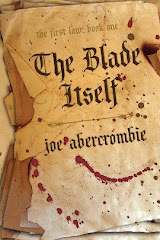.jpg)




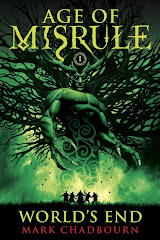.jpg)










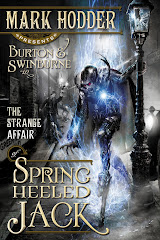


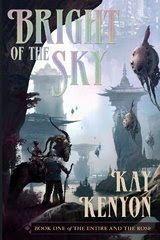.jpeg)
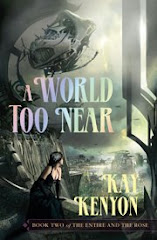.jpg)











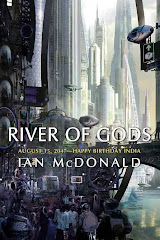.jpg)














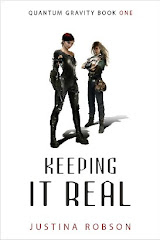.jpg)



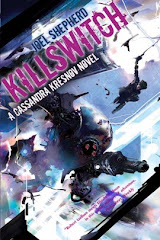.jpg)




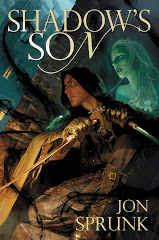

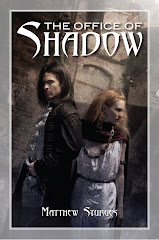







29 comments:
Thank you for sharing to us.there are many person searching about that now they will find enough resources by your post.I would like to join your blog anyway so please continue sharing with us. Katy Perry Meow perfume Celebrity Boots Fashion Style
I want to express appreciation to this writer just for bailing me out of this type of dilemma. As a result of exploring through the the web and obtaining techniques which were not beneficial, I thought my entire life was gone. Living devoid of the strategies to the problems you have solved through your good blog post is a critical case, as well as the kind which might have in a negative way damaged my entire career if I had not encountered your blog post. Your actual ability and kindness in dealing with all things was important. I am not sure what I would've done if I had not encountered such a point like this. I can also now look forward to my future. Thanks for your time very much for this impressive and effective guide. I won't think twice to refer your blog post to anybody who needs to have guide on this situation.
I have to point out my admiration for your generosity supporting men who really need help with this niche. Your special dedication to passing the message around turned out to be definitely productive and have really allowed those like me to reach their pursuits. The warm and friendly key points implies a great deal a person like me and substantially more to my office workers. Best wishes; from everyone of us.
I precisely needed to thank you very much yet again. I do not know what I would have made to happen without the type of aspects contributed by you about such field. It has been a daunting problem in my view, but spending time with your expert way you solved it made me to weep over fulfillment. I'm happier for the service and thus trust you know what an amazing job you're carrying out educating many people by way of your website. I'm certain you've never encountered any of us.
Awsome article and right to the point. I don't know if this is in fact the best place to ask but do you people have any ideea where to hire some professional writers? Thanks :)
Hey, just looking around some blogs, seems a pretty nice platform you are using. I'm currently using Wordpress for a few of my sites but looking to change one of them over to a platform similar to yours as a trial run. Anything in particular you would recommend about it? Agen Casino Casino Online
This is a great inspiring article.I am pretty much pleased with your good work.You put really helpful information. judi online, agen bola
I am really enjoying reading your well written articles. It looks like you spend a lot of effort and time on your blog. I have bookmarked it and I am looking forward to reading new articles.
Very good written post. It will be helpful to everyone who usess it, including yours truly :). Keep doing what you are doing - looking forward to more posts.. agen sbobet, bola tangkas
What youre saying is completely true. I know that everybody must say the same thing, but I just think that you put it in a way that everyone can understand. I also love the images you put in here. They fit so well with what youre trying to say. Im sure youll reach so many people with what youve got to say. deposit ion casino, 338a
Thanks so much with this fantastic new web site. I’m very fired up to show it to anyone. It makes me so satisfied your vast understanding and wisdom have a new channel for trying into the world.
Thank you for another essential article. Where else could anyone get that kind of information in such a complete way of writing? I have a presentation incoming week, and I am on the lookout for such information. agen sbobet, agen bola
Really good read for me, This is exactly what I was looking for. Thanks for sharing this great article! That is very interesting Smile I love reading and I am always searching for informative information like this! agen bola, agen sbobet
You should comment on the competition comparison of the blog. You can highlight it's mind boggling. Your blog exploration/tour will broaden your conversions.
Honestly everyone must appreciate your effort I like your blog you made to share the knowledge. The topic here I found was really useful to the topic which I was researching.
Your publish had provided me with another point of view on this topic. I had simply no strategy that things will most likely work in this form as well. Thank you for sharing your opinion. Obat Herpes Zoster | Obat Herbal Miom | Obat Penyakit Campak Herbal | Obat Gondok Tradisional | Obat Usus Buntu Herbal
I think more updates and will be returning. I have filtered for qualified edifying substance of this calibre all through the past various hours.
Hello, i am glad to read the whole content of this blog and am very excited and happy to say that the webmaster has done a very good job here to put all the information content and information at one place.
I agree with you. This post is truly inspiring. I like your post and everything you share with us is current and very informative, I want to bookmark the page so I can return here from you that you have done a fantastic job. Animlab.com
Nice post. I learn something more challenging on different blogs everyday. It will always be stimulating to read content from other writers and practice a little something from their store. I’d prefer to use some with the content on my blog whether you don’t mind. Natually I’ll give you a link on your web blog. Thanks for sharing. Thediamondhunt.com Shorthandedbreakaway.com Go-liv.come
When I originally commented I clicked the -Notify me when new comments are added- checkbox and now each time a comment is added I get four emails with the same comment. Is there any way you can remove me from that service? Thanks!
Click Here
Focusmr.com
There are some interesting points in time in this article but I don’t know if I see all of them center to heart. There is some validity but I will take hold opinion until I look into it further. Good article , thanks and we want more! Added to FeedBurner as well
Click Here
Tawk.to
Would you be interested in exchanging links?
Click Here
Visit Web
This is the right blog for anyone who wants to find out about this topic. You realize so much its almost hard to argue with you (not that I actually would want…HaHa). You definitely put a new spin on a topic thats been written about for years. Great stuff, just great!
Try.gitea.io
Information
Aw, this was a really nice post. In idea I would like to put in writing like this additionally – taking time and actual effort to make a very good article… but what can I say… I procrastinate alot and by no means seem to get something done.
Thinkpads.hatenablog.com
Information
This is the right blog for anyone who wants to find out about this topic. You realize so much its almost hard to argue with you (not that I actually would want…HaHa). You definitely put a new spin on a topic thats been written about for years. Great stuff, just great!
Click Here
Visit Web
Devot-ee.com
I was very pleased to find this web-site. I wanted to thanks for your time for this wonderful read!! I definitely enjoying every little bit of it and I have you bookmarked to check out new stuff you blog post.
Click Here
Visit Web
Magcloud.com
Very nice post, i certainly love this website, keep on it
Visit Web
Toontrack.com
Information
I’d have to check with you here. Which is not something I usually do! I enjoy reading a post that will make people think. Also, thanks for allowing me to comment!
Theverge.com
Information
Click Here
Visit Web
Post a Comment